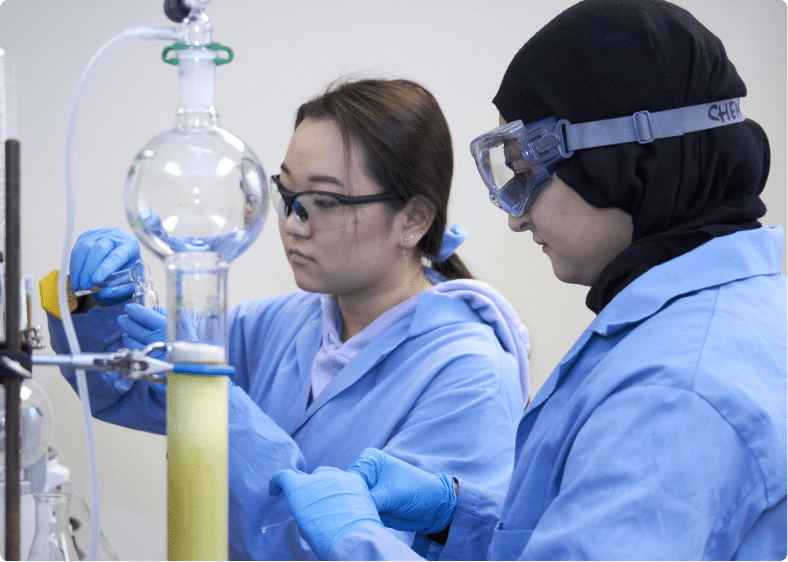Help drive the future of drug discovery and design while developing safe and effective drug treatments with a M.S. in Medicinal Chemistry.
This thesis-based program focusing on drug design, synthesis and evaluation leverages UHSP’s expertise in chemistry, pharmacology and pharmaceutics to help you polish your skills and advance your career. Throughout the program, you will deepen your understanding of chemical principles, apply them in biologically relevant systems and translate classroom learning to research-based experiences in the lab.

Looking Forward
Your M.S. in Medicinal Chemistry will prepare you for an exciting future in drug discovery.
- Impact the future of drug design as a pharmaceutical or biotechnology scientist
- Design and synthesize new chemicals to improve crop yields as an agricultural chemist
- Aid in patent preparation as a patent agent
6%
Expected chemist and materials scientist job growth through 2030
$87,180
Chemist and materials scientist median annual salary
7,200
Expected chemist and materials scientist job openings each year through the decade
Admission Requirements
Applicants must meet the following requirements for admission to UHSP’s M.S. in Medicinal Chemistry program:
- Bachelor’s degree in chemistry, biochemistry or similar field from a U.S. accredited institution or an equivalent degree from a foreign country
- Statement of purpose
- Two letters of recommendation (one letter must be submitted by a chemistry faculty)
- Resume
GRE scores are not required but can be submitted. English proficiency is required of all applicants whose native language is not English. Most students fulfill the English requirement by taking the Test of English as a Foreign Language (TOEFL).
Program Curriculum
As a student in the M.S. in Medicinal Chemistry program, you will complete these required courses and actively engage in faculty-mentored reserach and thesis projects, for a total of approximately 32 credit hours. Didactic courses include:
- Medicinal Chemistry I (3 credits)
- Medicinal Chemistry II (3 credits)
- Organic Reaction Mechanisms (3 credits)
- Organic Synthesis (3 credits)
- Spectroscopy (3 credits)
- Structure-Based Drug Design (3 credits)
- Medicinal Chemistry Seminar (1 credit)